The UK’s FTSE 100 remains a big post-Brexit winner. This headline from the Telegraph for January 10, 2017 says it all: “FTSE 100 records longest run of closing highs since 1984 as Brexit fears hurt pound.”
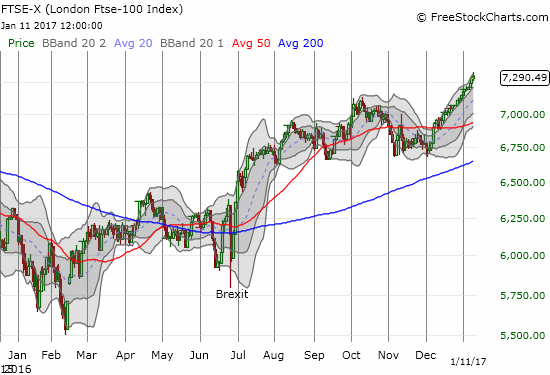
The FTSE 100 was created in 1984. Never since that time has the index notched nine straight all-time highs as it has done now. The eleven straight days of gains is also an all-time record for the index. This run matches similar runs in 1997, 2004 and 2009.
These gains are coming partially at the expense of the British pound (FXB). The pound last peaked in early December against the U.S. dollar and the euro. Against the yen, the pound last peaked in mid-December. For each currency pair, important technical milestones have occurred.
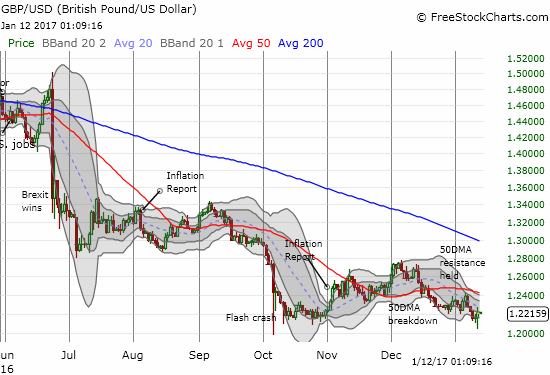
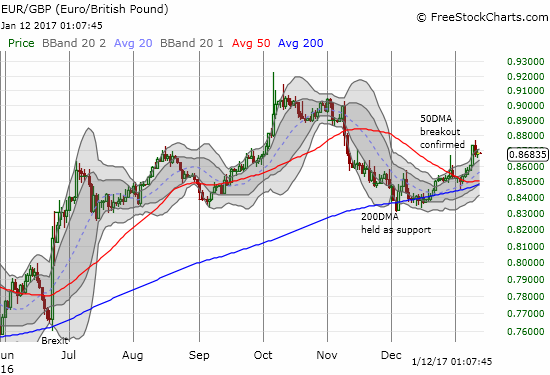
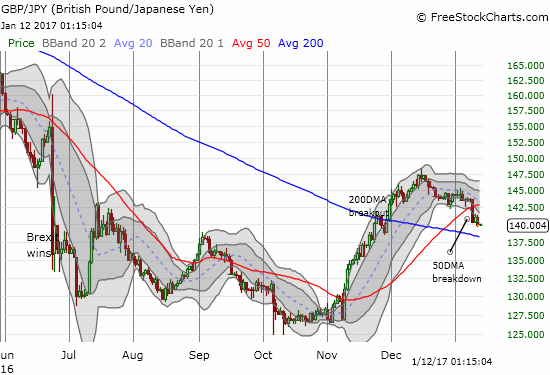
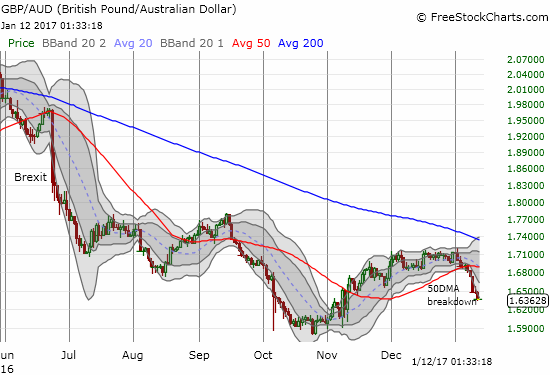
Source for charts: FreeStockCharts.com
Taken together, these technical developments have confirmed my nascent fear from early December that buying interest in the British pound was starting to dry up. The reversal in outlook forced me to switch the bias of my trading on the British pound from hedged bullish to mainly bearish. I am particularly interested in fading a (relief) rally on GBP/AUD despite my growing bearishness on the Australian dollar.
The irony of the renewed weakness in the pound is that 2016 ended with a combination of news that could have supported the British pound.
Inflation hit a 2-year high in November. Analysts claim that currency hedging has so far buffered follow-through price hikes to British consumers, but this juggling will come to an end in the second quarter of 2017. Not only do these price dynamics validate the Bank of England’s suggestion that it is done with rate cuts in response to Brexit, but also I think these dynamics slightly increase the odds of a reversal in policy.
A drop in foreign investment looms as one of the biggest post-Brexit fears for the UK economy. On December 30th, Liam Fox, the UK’s (post-Brexit) International Trade Secretary, claimed that his department landed more than £16.3 billion of foreign direct investment with billions more to come. Add this news on top of the good economic news that forced the Bank of England to stand down from its initial plan to cut rates one more time before the end of 2016.
Going forward, I am looking to a fresh intensification of Brexit concerns as the time approaches for the UK to officially begin the exit process (the infamous Article 50). Under such circumstances, it is hard to imagine the British pound gaining any lasting positive tailwinds.
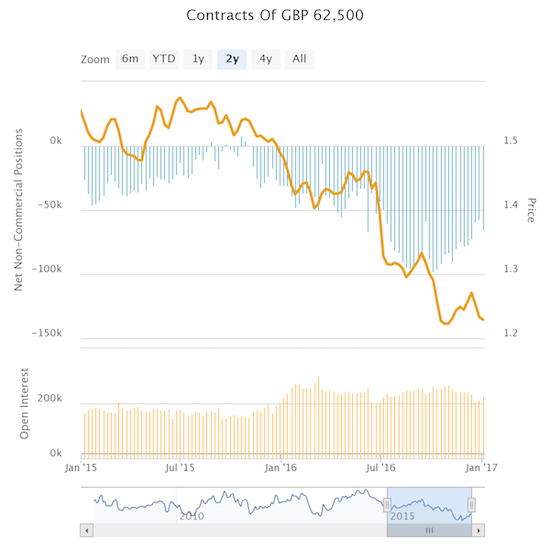
Source: Oanda’s Commitments of Traders
Be careful out there!
Full disclosure: net short the British pound
